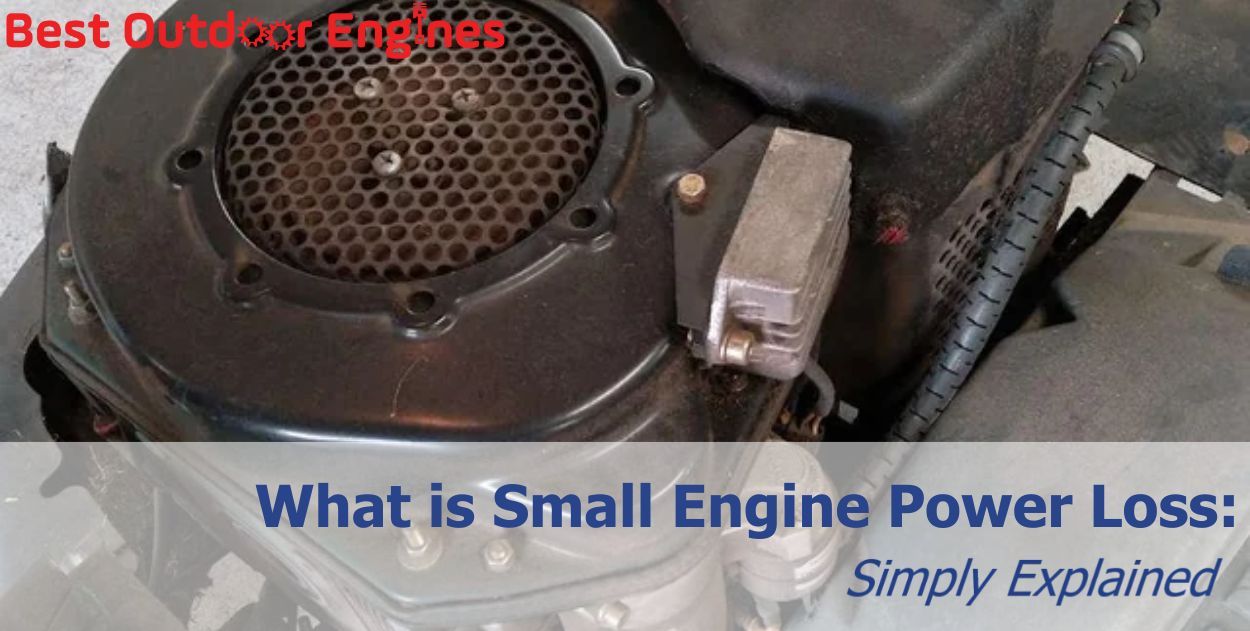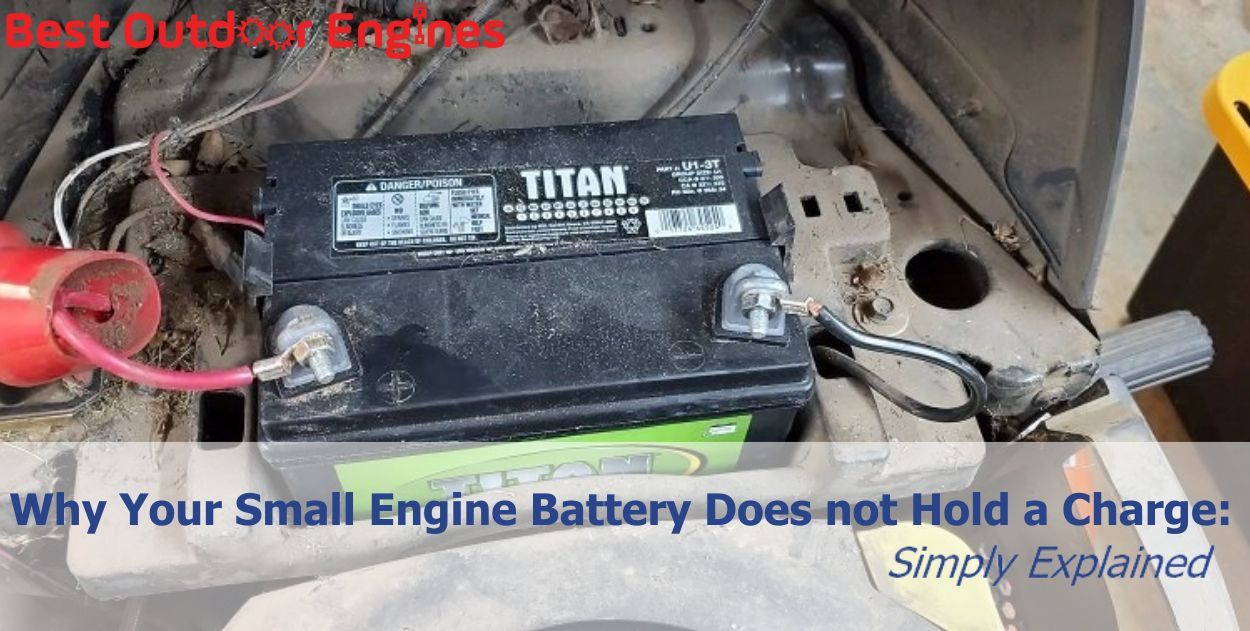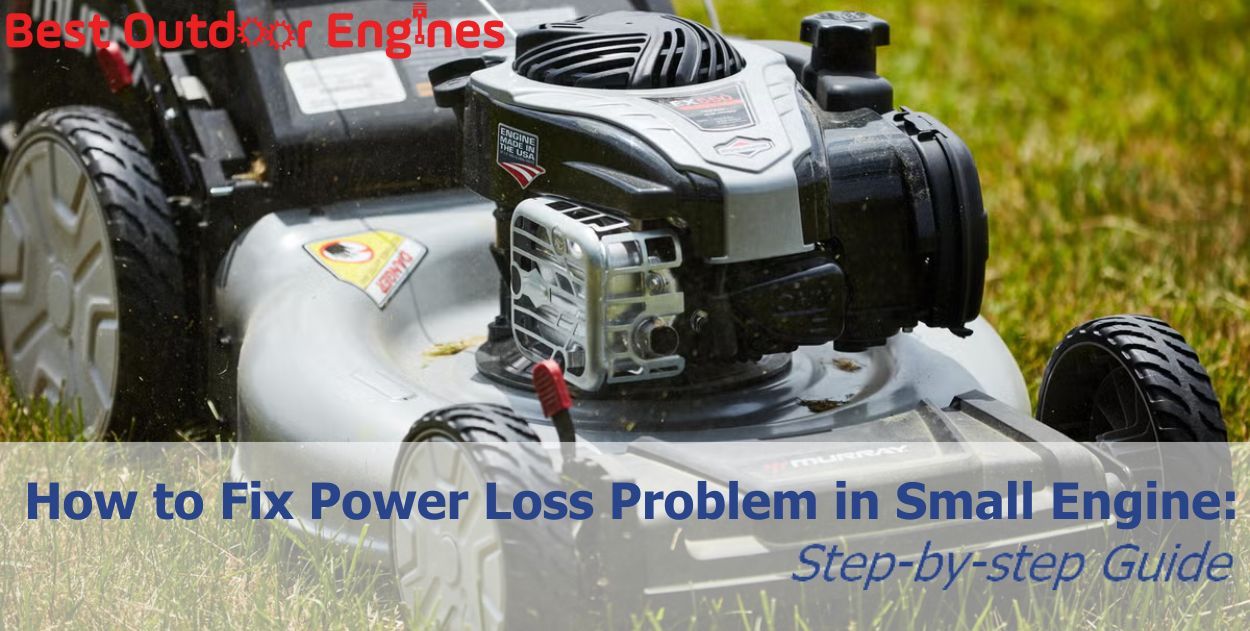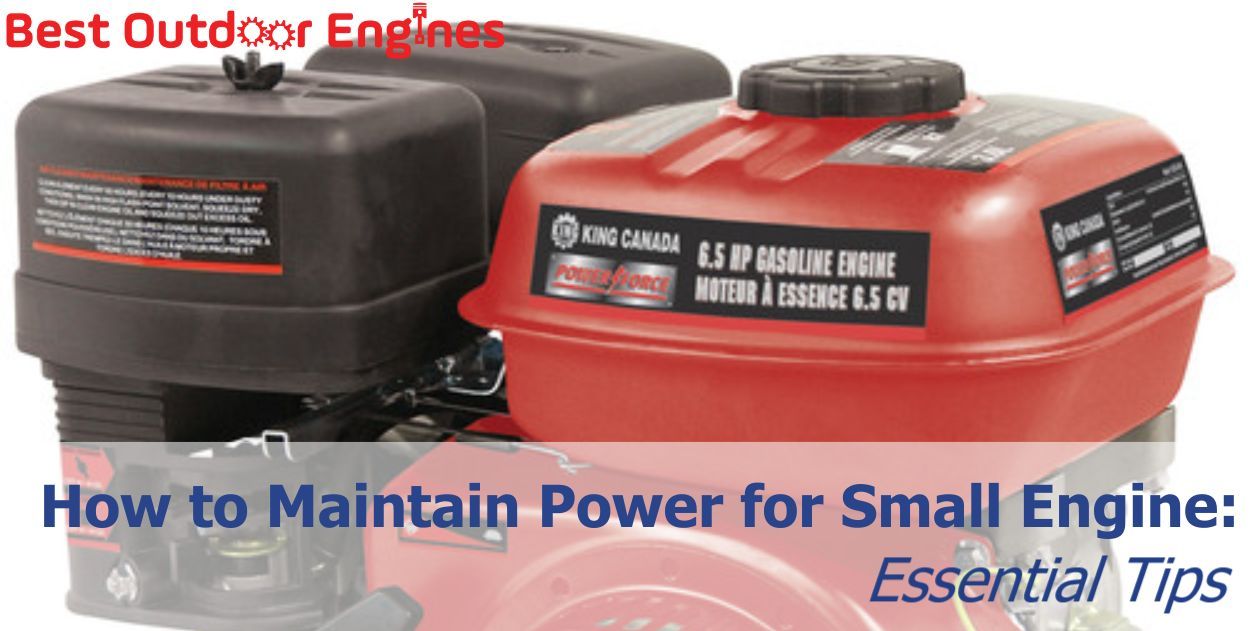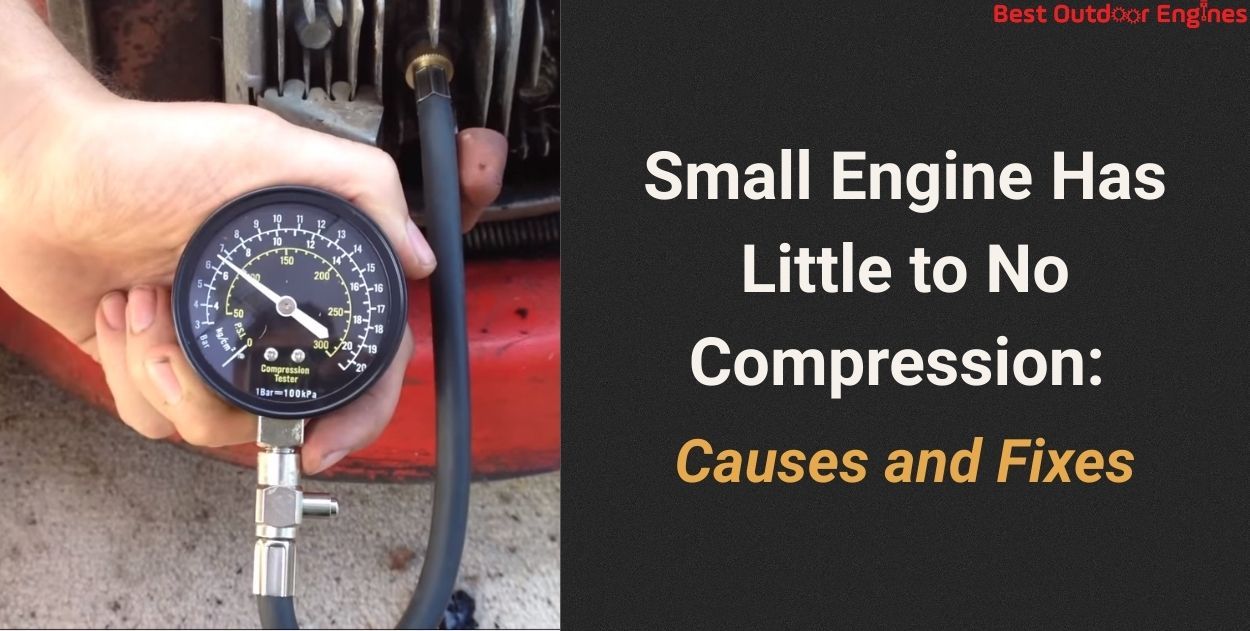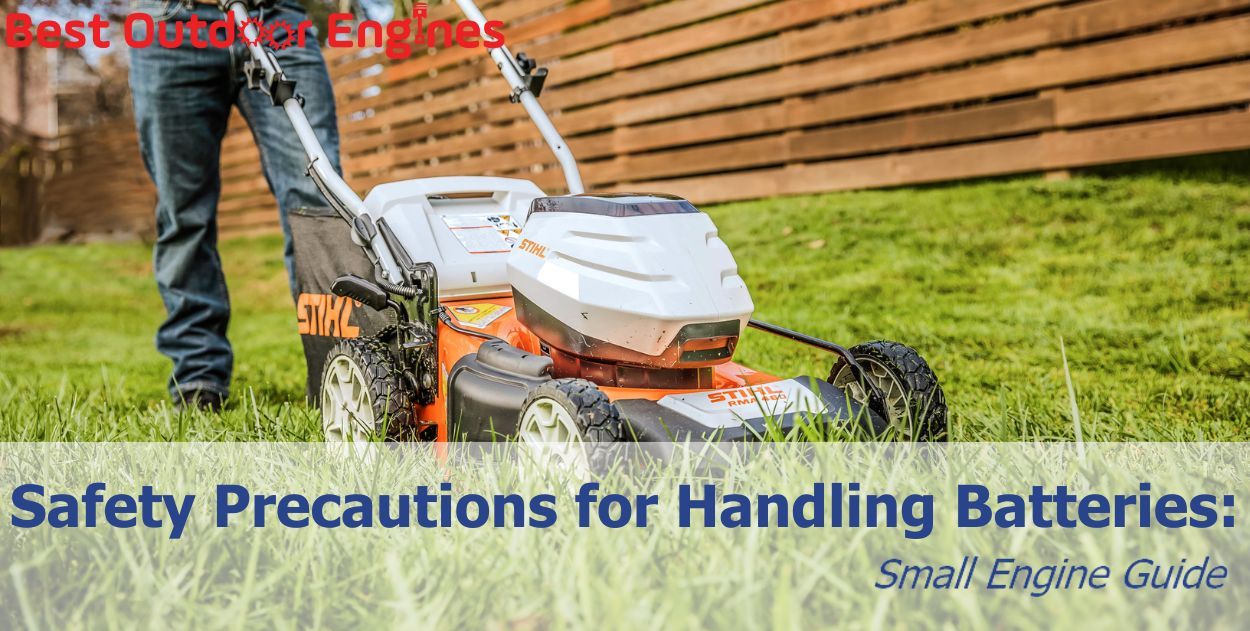How to Start a Home-Based Small Engine Repair Business: Zero to Hero
Starting a small engine repair business from home can be a rewarding venture for those passionate about mechanics and looking for a flexible, cost-effective business model. Learn how you can help your client to fix lawn mowers, snow blowers, chainsaws, and more.

Learn to Do it First!
If you're not already experienced, gaining knowledge and skills in small engine repair is crucial. Consider taking courses, obtaining certifications, or working under a seasoned repair technician. Staying updated with the latest repair techniques and engine models can give you a competitive edge.
We believe that learning small engine repair can be both a practical skill and a fulfilling hobby. If you want to do it offline, consider enrolling in vocational schools or community college courses that offer hands-on training in mechanics. These programs often provide comprehensive instruction on various types of small engines, tools, and diagnostic techniques. For online learning, explore web-based courses, tutorials, and webinars offered by educational platforms and industry organizations. Online resources such as video tutorials on platforms like YouTube can also be invaluable, offering step-by-step guides for specific repairs. Combining online theory with offline practical experience provides a well-rounded understanding of small engine repair..
After you have learned how to repair your small engine, now it’s the time for other things to be done. 
Start With A Plan
First, you should begin with a comprehensive business plan. Outline your services, target market, pricing strategy, and financial projections. Consider specializing in specific types of small engines to differentiate your business and cater to a niche market. Research local competition to identify gaps in the market and opportunities for your business.
Set Up Your Legality and Administration
Before really starting, you should ensure your business complies with local zoning laws, especially since operating from home can have restrictions. Register your business, obtain necessary licenses, and consider liability insurance to protect against potential claims arising from your repair work. At this phase, it’s good to set up a dedicated business phone line and email address can also professionalize your operations.
Create a Workshop Space
When you have finished the above-mentioned steps, it’s time to find a space in your home or garage as your workshop. It should be well-organized, with designated areas for different repair tasks and storage for tools and parts. Invest in quality tools and equipment essential for small engine repair, including wrench sets, screwdrivers, pliers, and a workbench.
Source Your Parts and Supplies
Establish relationships with suppliers for parts and supplies. Having a network of reliable suppliers ensures you can quickly obtain necessary parts, reducing downtime for your clients' equipment. Consider stocking up on common parts to expedite repairs.
Set Your Price
Determine your pricing structure based on the complexity of repairs, parts, and your time. Research what local competitors charge to ensure your rates are competitive but also reflect the value of your expertise and the convenience of your service.
Offer Exceptional Service
Customer satisfaction should be your top priority. Offer transparent pricing, clear communication about repair timelines and costs, and a guarantee for your work. Exceptional service leads to repeat business and word-of-mouth referrals, essential for growing your business.
Market Your Business
Effective marketing is key to attracting customers. Create business cards, flyers, and a professional website showcasing your services, contact information, and customer testimonials. Utilize social media platforms to reach local customers. Consider offering a discount for first-time customers or referrals to build your client base.
When the first customer and then many other customers come into your store, keeping them happy will require a mix of excellent customer service, a welcoming store environment, and efficient service. Start by greeting clients warmly as they enter, making them feel valued and acknowledged. Ensure you and your staff(if there is) are knowledgeable and ready to assist with inquiries, providing accurate and helpful advice tailored to each client's needs. The store layout should be organized and clean, with clear signage to help clients find what they're looking for easily. Waiting areas with comfortable seating and amenities like coffee or magazines can make waiting for service or assistance more pleasant. Demonstrating products, offering hands-on advice, and explaining services in detail can further enhance the in-store experience. Transparency about service times, costs, and processes builds trust and satisfaction. Lastly, personalized touches, such as remembering repeat customers' names or preferences, contribute significantly to a positive in-store atmosphere, making clients feel appreciated and likely to return.
When the customers are happily getting home, it’s time to build loyalty and encourage repeat business. Follow-up is key; consider reaching out with a thank-you message or email after a purchase or service, expressing appreciation and inviting feedback. You can do it by implementing a loyalty program that can reward repeat customers with discounts, free services, or special offers, giving them an incentive to come back. Don’t forget to Provide to ensure customers know that they can reach out with questions or issues and receive prompt, helpful responses.
Sharing useful content, tips, or maintenance advice through newsletters or social media can keep your store top-of-mind and demonstrate your commitment to their satisfaction beyond the initial transaction. Encouraging reviews and testimonials can also boost confidence in your services among potential customers. By maintaining a positive relationship and open lines of communication with customers even when they're not physically in your store, you solidify their trust and satisfaction, fostering a loyal customer base.
Starting a small engine repair business from home involves careful planning, legal compliance, skill development, and effective marketing. By creating a dedicated workspace, offering specialized services, and prioritizing customer satisfaction, you can establish a successful home-based repair business, turning your passion for mechanics into a profitable venture.
1. Do I need special certifications to start a small engine repair business?
While not always required, certifications can enhance your credibility and knowledge. There are many good courses on Coursera or any other site on the internet. But remember that customers come to you for many reasons: You fixed their engine last time, they heard about your store, or they needed help! Courses are crucial, but it’s not everything you need.
2. How can I keep my home-based business professional?
Make sure your workspace always looks dedicated. Fixing the engine may not be enough. Make sure you use professional invoicing and communication methods, and ensure your customer service is top-notch.
3. What's the most effective way to attract customers to my new business?
Combining online marketing with traditional methods like word-of-mouth and local advertising is effective. Offering promotions and leveraging social media can also attract a broader audience.
4. How should I manage parts inventory for my repair business?
Start with a basic inventory of common parts and adjust based on demand. Use inventory management software to keep track of stock levels and reorder parts as needed.
5. Can I run a small engine repair business if I don't have a background in mechanics?
Yes, but gaining the necessary skills and knowledge is crucial. Consider enrolling in courses or gaining experience through apprenticeships or workshops.



